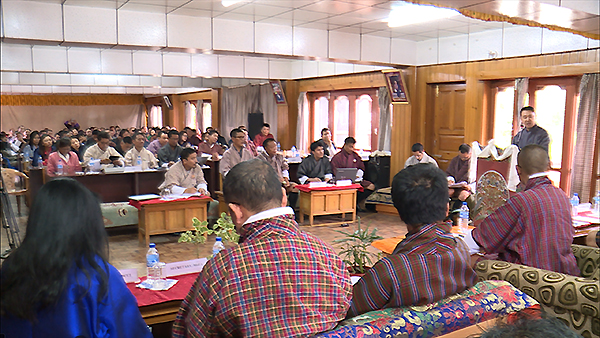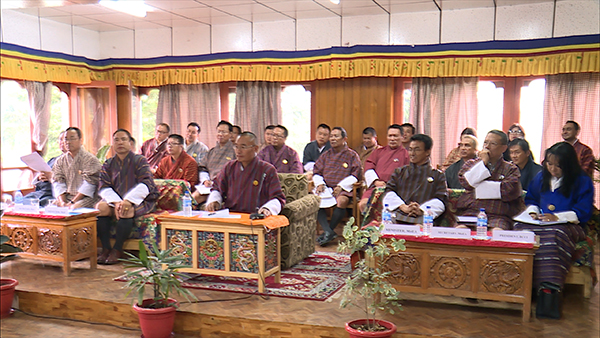 The prices of goods in the country imported from India will go down after the introduction of the Goods and Services Tax or GST by the Indian government.
The prices of goods in the country imported from India will go down after the introduction of the Goods and Services Tax or GST by the Indian government.
On the other hand, the government will lose about Nu 14bn in the 12th Five Year Plan. This was shared during the consultative meeting between the Finance Ministry and the private sector on the GST on August 11.
The Director of Revenue and Customs Department, Yonten Namgyel, said the prices of top ten import commodities will fall by 14 per cent on an average while for consumable goods, the expected average price drop is about 5 per cent. For essential items, there will be no impact since it is already tax free.
“About 78 per cent of taxes are collected from the trading sector on import. So when the price of goods falls, we are seeing that maybe on the point of entry, the collection of taxes will fall down by 5 per cent,” he added.
This change will cost the government a loss of Nu 12bn from excise duty refund and Nu 2bn from sales tax and green tax.
The Director said with the GST, informal trade across the border can be addressed as well.
“The good thing about GST is, everything is electronic, so now we cannot pay cash, taxes in cash, you have to route it through a bank account and the whole system, GST ‘N’ network,” said Yonten Namgyel. “When everything is routed there, electronic declaration payment will be formalized and informal sector will decrease and if you purchase anything from those non-GST registered or what we call open market, that will be expensive.”
However, drop in prices of goods and services could lead to increased import and widening of the trade deficit.
 Also, for the industries, although raw materials become cheaper, for steel, cement and Ferro silicon industries, export is now expensive. Post GST, the value added tax for import of such products to India has increased.
Also, for the industries, although raw materials become cheaper, for steel, cement and Ferro silicon industries, export is now expensive. Post GST, the value added tax for import of such products to India has increased.
Addressing the gathering, Prime Minister Dasho Tshering Tobgay said industries in Bhutan should now be competitive as raw materials become cheaper. He said the private sector’s request to do away with excise duty refund is now happening.
“Today, whatever goods we import from India, the government there has been bearing the excise duty. And now, with the tax reforms, we don’t have to pay the excise duty or GST,” said the Prime Minister. “I see a big opportunity here. It’s up to us whether to take the opportunity or not.”
Regarding the recommendation of the Bhutan Chamber of Commerce and Industry to rationalise Bhutan’s tax regime with that of India’s, the Prime Minister said the issue must go through the parliament. For exemption of GST exclusively for Bhutan, Dasho Tshering Tobgay said, the government cannot request such.
“Goods entering from Bhutan are treated as same as goods produced within India. So when GST exemption is not given to their local industries, how can Bhutan ask for exclusivity.”
Meanwhile, he said the government will ensure the benefit of GST on the imports is passed to the consumers.












